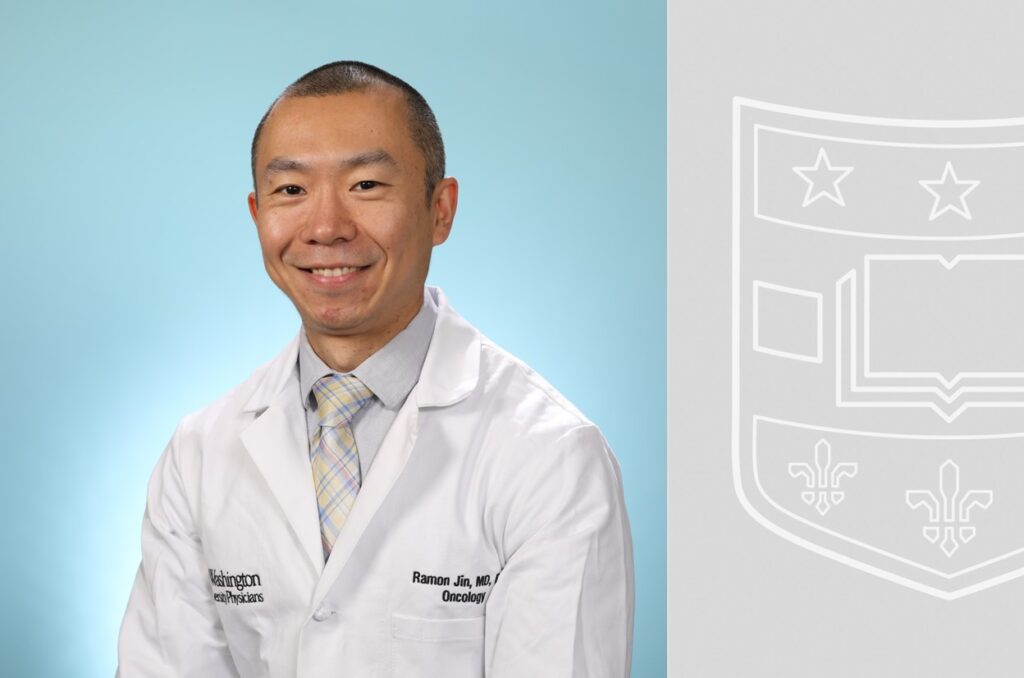Dr. Ramon Jin joined the Department of Medicine in the Division of Oncology as an Assistant Professor in July 2024. He treats gastroesophageal cancer patients and studies these cancers and their precursor conditions in the research lab. His career goal is to become an independent basic science and translational researcher at the nexus of cancer and developmental biology. As an undergraduate, Dr. Jin was introduced to laboratory science and worked on the role of the gene, CFTR, in metabolic and hormonal regulation. He became interested in the transcriptional regulation of secretory acinar cell differentiation in the stomach as a predoctoral MSTP student. His decision to become an oncologist was shaped during his PhD research time when a close graduate student colleague, Greg Sibbel, passed away from an aggressive form of Ewing’s sarcoma.
Dr. Jin’s research experience has been complemented by his medical training during medical school, internal medicine residency, and hematology-oncology fellowship. For his postdoctoral training, Dr. Jin applied his previous experience in genetics, cell biology, and developmental biology to upper gastrointestinal malignancies. Survival in gastric and esophageal cancers is poor, reflecting a lack of understanding about the pathogenesis of these diseases. He joined the lab of Dr. Jason Mills to study gastroesophageal cancers and their pre-malignant precursor metaplastic lesions (e.g., Barrett’s esophagus). He was then recruited to become a tenure track faculty member in the Divisions of Gastroenterology and Oncology at Washington University School of Medicine.
The goal of his lab has been to fully understand the molecular heterogeneity of gastroesophageal cancers and their metaplastic precursors though an integrative multi-omics approach using murine and human organoid models. Within this framework, Dr. Jin proposes to study the effects of the transcription factors SOX2 and CDX2 during Barrett’s esophagus development and esophageal adenocarcinoma progression. The depth and breadth of Dr. Jin’s basic science training combined with his clinical expertise will allow him to succeed as an independent physician scientist and to become a leader in the field of gastrointestinal oncology.
